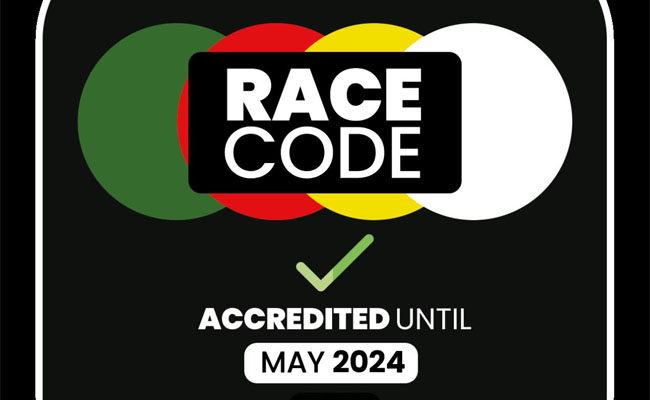WMCA first in the UK to be awarded RACE quality mark

The West Midlands Combined Authority (WMCA) has been named as the first organisation in the UK to qualify to use the RACE (Reporting Action Composition Education) Equality Code quality mark.
The new code has been designed to help organisations take action to improve race equality in the workplace and draws together more than 200 recommendations outlined in reports, charters, and pledges, which aim to tackle diversity and inclusion challenges.
To qualify to display the mark, the WMCA had to demonstrate it encouraged race equality in its own organisation by going through an assessment and drawing up an action plan for it to follow.
Andy Street, the Mayor of the West Midlands and chair of the WMCA, said: “I am delighted that the West Midlands Combined Authority has been awarded this RACE code quality mark. Whilst we’re the first in the country to do so, I hope that other local organisations will follow suit.
“Tackling inequalities of all kinds is vital if we are going to ensure that our economic recovery from the pandemic benefits all sections of society, whatever their colour, race or background. That’s something that will benefit everyone, from every community.
“The West Midlands Combined Authority is committed to taking action to promote diversity, inclusion and equality across the region, so it is only right that we take steps to raise awareness of and tackle race disparities within our own organisation and across all our activity.
“Work has already started – and we will continue to deliver on our RACE action plan alongside our wider efforts to help enable greater equality of opportunity for all of our staff and communities.
“This RACE code is just one important part of what we are doing. We are taking action to improve skills and training amongst all communities, so people across the region have greater job and career opportunities. We are improving public transport connectivity across the region, increasing access to job opportunities and bringing investment into long-forgotten communities. And our report into health inequalities across the West Midlands, published last year, is leading to action to tackle some of the health-related causes of economic inequality.”
The RACE Equality Code provides one set of standards, applicable to any organisation irrespective of size or sector. It was launched last year in October, as part of Black History Month 2020, by Dr Karl George MBE and a national steering group of experts in governance and racial inequality. Dr George, who runs Birmingham-based the governance forum (tgf), said: “I am pleased that WMCA was the first one of the early adopters of this Code, which now has 25 other organisations in the private, public and voluntary sector. The feedback they provided in the consultation period of the Code’s development was invaluable. The commitment to the four principles outlined in the code and being accountable for the actions that have been outlined, can only help to move the dial on race equality and underrepresentation.”
Before they are granted use of the mark, organisations must show they meet the standards for each of the RACE principles and develop an action plan to tackle areas of improvement. A RACE action plan will include measures for publicly reporting on progress, improving HR practices, increasing diversity at senior levels and educating staff on race inequality.
The award of the mark follows last month’s announcement that the WMCA has been named as the seventh most inclusive employer in the country by the National Centre for Diversity.
The RACE Code activity will form part of the wider WMCA portfolio for inclusive communities, which oversees a range of initiatives that help the organisation to plan, decide and deliver in a more inclusive way. Other inclusive communities projects include the West Midlands Leadership Commission and Young Combined Authority, which called on the WMCA Board to take further action on race inequality last summer.
The WMCA portfolio holder for inclusive communities, Councillor Brigid Jones, deputy leader of Birmingham City Council, said: “The RACE Equality Code assessment is designed to be challenging; it asks senior managers at the WMCA to identify ways they could do more to improve leadership diversity and race equality across the organisation.
“Adopting the RACE Code, and delivering on the action plan, will help the WMCA to lead by example in its efforts to make the region a more inclusive place to live and work.”





